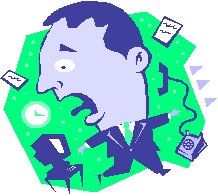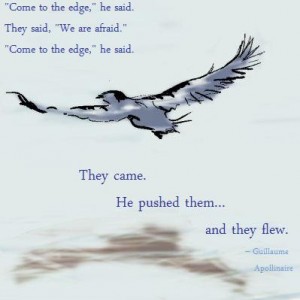If you follow many blogs by authors and aspiring authors, you see the extensive conflict, both internal and external. Do legacy publishers still offer the “grand dream?” Is self-publishing the way to go? Could it be that indie publishers provide the best alternative in this new environment? Opinions run hot and heavy, and debate can become quite animated.

Is there a single right answer? Okay, so that’s a rhetorical question. The world of publishing has opened up, offering authors more options than at any time in history, and that’s a trend still developing—there will be many more opportunities ahead.
LEGACY PUBLISHERS
The simple fact is that technology is driving the train—for everyone—pulling the traditional boxcar publishers kicking and screaming into new territory, and offering authors greater flexibility and market reach than ever. Legacy publishers, often referred to erroneously as “The Big 6,” still offer authors certain benefits. They pay advances, but those are getting smaller and smaller, especially for unproven authors. They offer editorial assistance, though many would argue that both quantity and quality has diminished in that area. They provide distribution access to bookstores around the country. And your agent—yes, you must have an agent—may provide access to worldwide markets through foreign sub-agents, and may provide inroads to sell your movie rights and audio book rights.
In other words, they’ve built their industry to provide you access to all the markets, the better for them to make money. So what’s the problem? Why not just stick with legacy publishers? Well, the odds of entry are stacked against you (How’s that for an understatement?). You could try for years, decades even, and never crack that bubble, and it may have nothing to do with the quality of your work. If you’re one of the lucky aspiring authors who actually wins that lottery, good for you. Maybe. Or maybe not.
Most authors don’t earn out their advances, meaning that whatever they receive as an advance is all they make on the print copy. They’ll likely earn less per print copy than they would from a self-published eBook. As for eBooks, publishers are paying a whopping 17.6% royalty to authors, on average, based on recent industry reporting. Yep. 17.6%. Some are talking about raising that now, to as high as (perhaps I should say as low as) 40% of profits. Additionally, the answer for most authors is, “No, they won’t likely market your book for you. They’ll expect you to carry that load.” Thus, you can expect to pay out of pocket to sell your book. Finally, don’t be surprised if, from the moment you sign with an agent to the moment your book appears on the store shelves, two years or more have vanished into history.
Authors in the traditional, legacy publishing industry have many mouths to feed: publisher, literary agent, distributors—each with all their employees, buildings and expenses. Thus the authors, creators of the works that are the reason those entities even exist, get a much smaller piece of the pie. That’s just how it is. Do the benefits they offer outweigh that concern?
In my experience in recent months, those most vociferously defending the legacy publishers are the ones presently invested in them in some way. Of course, I could say the same about the other publishing options.
SELF-PUBLISHING
It sure is easy these days. And cheap. If publishing time and cost are your only concerns, this is the way to go. A few days of studying and formatting, and you’re ready to upload your eBook and/or POD book. But wait! Has your book been professionally edited? Do you have a professional cover? Do you have a professional marketing plan in place to sell your book, or are you going to trust your fate to… well, fate? (Note: The preponderance of the word “professional” here is no accident.)
We used to refer to self-publishing as the Vanity Press, back when the primary option was a pay-in-advance printer. In those days, 99% of self-publishers lost money. Yep. Lost money. Thus, the “Vanity” tag—people self-published not to become professional authors, but to see a book on the shelf with their name on it, or to impress their family and friends and coworkers and neighbors who didn’t know any better.
Nowadays, one can create a print copy via a POD (Print-on-Demand) publisher, minimizing both the up-front expense and the likelihood of losing money (which is not to say the author will actually make much money on it). One can also create an eBook at virtually no expense (which is not to say the author will actually make much money on it). Hmm, I sense a trend here.
Is the new ease of self-publishing, and the better author royalties per copy sold, attracting better authors, luring them away from the traditional path? You’d better believe it. Sadly, it is also drawing all those folks who self-published sub-standard work just to see their name in lights—only more of them, now that it’s so cheap.
The truth is that I have a love/hate relationship with self-published authors. Those who disregard professional quality, for whatever reason, frustrate me. They devour my time and energy, and muddy up the waters where I intend to swim. Yet if you’re a self-pubber who does it right, who insists on quality from start to finish, I love you! Really, I do.
I’ve learned one thing, for sure: no group is more vociferous in defending their choices than self-pubbers. One must enter that maze of discussions with great caution, lest one unleash the very hounds of hell. Many of those debates are lively and interesting, but many of them (and please, let’s just be honest here) devolve into exercises in self-rationalization.
The professionals will rise to the top, in the end, and they will remain the exception to this general rule: Most self-published work is not very good. I know, here come all the screams and hollers from self-pubbers. Please note that I said “general” and “most.” Will it continue to be 99% bad, as in the past? I don’t know; maybe it’s just too early to tell. However, early indicators are not good. I’ve sampled about 150 books at sites like Amazon, Smashwords and BookieJar, and only 3 of those moved me to purchase. The rest were dull, poorly structured, or laced with errors—or all of the above. Of the 3 I purchased, 2 have proven disappointing. Let me say that the 150 I sampled were all from relative unknowns—authors still trying to find a market.
And so, if it seems as though I’m not supporting indie authors, it’s not for wont of trying. 3 out of 150. Not good.
INDIE PUBLISHERS / SMALL PRESS
First, I do not consider self-publishers “indie” publishers, even if they create a publishing label to publish their work (and only their work). I relate indie publishing to what we always called the small press—those who publish several authors, but who don’t meet sales numbers large enough to be called a major publishing house.
This, I think, is where a good number of authors will eventually go. Furthermore, I think bolder, fresher business models will continue to evolve to meet those authors’ needs.
However, as this is already a long piece (thanks for hanging in there), and because it’s such a complex subject all its own, I shall discuss this option in detail in the near future.
And yes, by way of disclaimer, I am one of the co-founders of Evolved Publishing, an indie publisher. More on that next time.
———-
















Please follow me here: